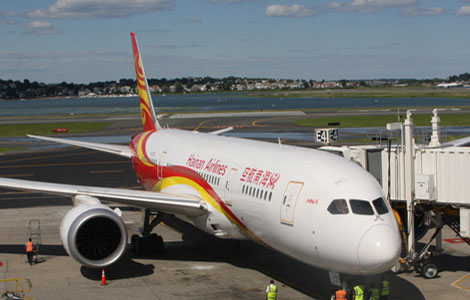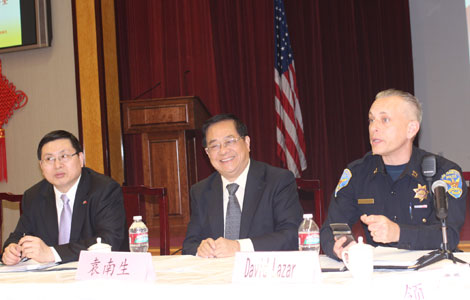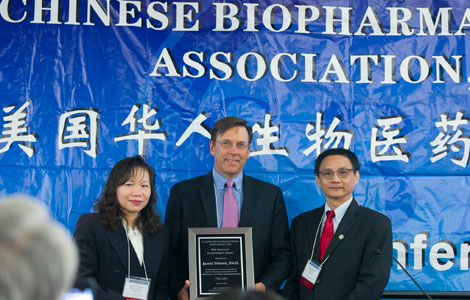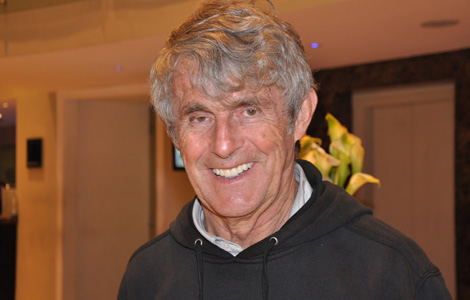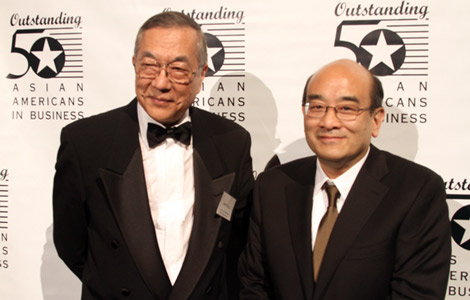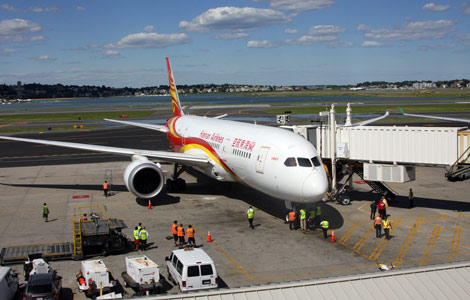Criticism by ex-US official dismissed
Updated: 2014-06-23 06:57
By Xinhua in Beijing (China Daily USA)
|
||||||||
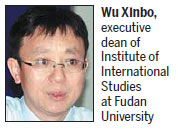
A Chinese scholar has refuted allegations by Stephen Hadley, a former US national security adviser, that China's diplomacy in the Asia-Pacific has escalated regional tensions.
Wu Xinbo, executive dean of the Institute of International Studies at Fudan University, told the People's Daily on Saturday that Hadley's allegations reflected the United States' concerns about China's rise in the Asia-Pacific and the US' intention to complicate matters in the region.
At the World Peace Forum in Beijing over the weekend, Hadley said China is trying to deny the US military access to waters off the Chinese coast, according to The Sydney Morning Herald.
Wu, a participant in the forum, said the US is overreacting to China's proposal at the Conference on Interaction and Confidence Building Measures in Asia, a sign that it has not adapted to what is currently developing in the Asia-Pacific region.
Through the CICA, China wants to tell the world that Asian countries should determine Asia's security systems, said Wu, adding that the countries on the continent are capable and wise enough to safeguard and promote security through cooperation.
In the past, the US played a leading role in regional security in the Asia-Pacific and was accustomed to its allies and partners relying on it to solve security issues, he said.
But now, Wu said, with the development of Asian economies, countries in Asia have become confident and have realized the importance of dealing with regional security issues by themselves.
The scholar also said it is unnecessary for the US to worry about its role and influence in the region because China has welcomed other countries to play a positive role in the region.
He blamed the US and its allies for stirring up trouble for China.
Taking a look at the US' economic and security strategies and its foreign policy around China, Wu said, the nation is building a system that places itself at the center with its allies as members.
The US is building a security alliance, promoting the Trans-Pacific Partnership agreement and conducting dialogues with Japan, Australia and India on how to deal with a rising China, he said.
These facts demonstrate that the US is comprehensively handling its relations with a rising China with plans to counterbalance the Asian country. Many of the US' recent moves are not in China's interests, Wu said.
He also added that the US is to blame if the Sino-US endeavor to build a new model of relations between the world's two largest economies does not progress as planned, Wu said.
At the World Peace Forum, Hadley claimed China has not shown enough sincerity in promoting the new model for developing ties and should adopt practical measures to do so.
Both countries should make joint efforts to build upon their bilateral ties, Wu said.
"The Chinese leadership is serious about this proposal and has been considering concrete plans for the new model of China-US relationship. But the US was not enthusiastic about the proposal from the beginning," Wu said.
(China Daily USA 06/23/2014 page1)
Most Viewed
Editor's Picks

|

|

|

|

|
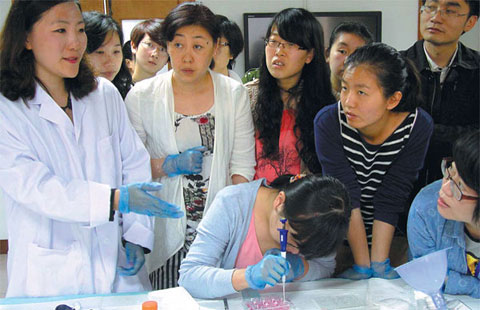
|
Today's Top News
Criticism by ex-US official dismissed
PLA official rips Tokyo's 'historical distortions'
32 terror groups busted in Xinjiang
Chinese paper plant to employ 2,000 by 2020
China hits the Western operatic 'High C'
Neighboring countries urged not to stir tensions
Criticism by ex-US official dismissed
Roughshod over China's rights
US Weekly

|

|
